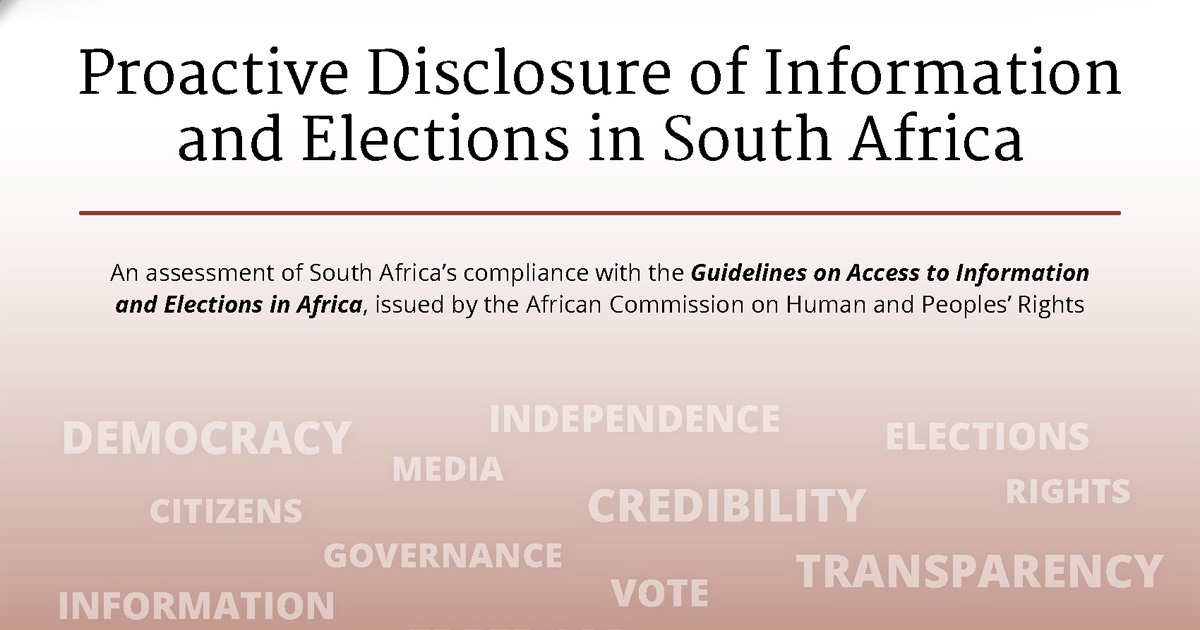
This project assesses state compliance with the Guidelines on Access to Information and Elections in Africa (the Guidelines) that the African Commission on Human and Peoples’ Rights (the African Commission) adopted during its 61st Ordinary Session in November 2017. The initial country assessment under the Guidelines focused on the 2019 elections in South Africa and the report was launched in 2020. The Unit has also undertaken similar country assessment studies for Ghana (2020), Tanzania (2020), Uganda (2020), The Gambia (2021), Angola (2022), and Kenya (2022).
The objective of the study is to evaluate the realisation of the right of access to information during elections in Africa and promote electoral transparency in African elections. The research is assessed primarily on the basis of the Guidelines, and also considers the national access to information legislative framework as well as other regional and international human rights obligations. The research seeks to contribute to a larger body of work assessing how African countries ensure access to information during elections as envisioned by the Guidelines.
Following the release of the reports, the EIDR Unit seeks to engage relevant electoral stakeholders to offer support in implementing the recommendations of the country reports.
Activities under the project include:
- Access to information and election preparedness workshop in Botswana.
- Launch of the Proactive Disclosure of Information and Elections in South Africa report.
- Pre-election Multi-stakeholder training on the Declaration of Principles on Freedom of Expression and Access to Information in Africa and the Guidelines on Access to Information and Elections in Africa in Kenya in partnership with Article 19, The Gambia.
Outputs
Proactive Disclosure of Information and Elections in South Africa report.

